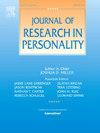提高自我认识:绩效反馈如何影响个人对其认知能力的自我评估
IF 2.6
2区 心理学
Q2 PSYCHOLOGY, SOCIAL
引用次数: 0
摘要
个体在不同的情况下评估自己的认知能力,然而,这些自我评估是相当不准确的。在两个实验(每个N = 200)中,我们研究了绩效反馈是否提高了自我估计的准确性。我们的参与者执行认知任务,并事先评估他们的能力。其中一半人的表现得到了反馈,而另一半则没有。然后,所有参与者评估自己的能力,并再次执行每项任务。总体而言,表现反馈并不影响各种认知能力的自我估计准确性。有趣的是,随着时间的推移,在两组和大多数能力领域中,表现评级和表现之间的相关性都变得更高,这表明练习提高了自我评估的准确性。因此,任务经验和自我评估可能会促进自我认识,而不是绩效反馈。本文章由计算机程序翻译,如有差异,请以英文原文为准。
Improving self-knowledge: How performance feedback impacts individuals’ self-estimates of their cognitive abilities
Individuals assess their cognitive abilities in different situations, however, those self-estimates are rather inaccurate. In two experiments (each N = 200), we investigated whether performance feedback improves the accuracy of self-estimates. Our participants performed cognitive tasks and estimated their abilities beforehand. One half received feedback on their performance, whereas the other half did not. Then, all participants estimated their abilities and performed each task again. Overall, performance feedback did not impact self-estimate accuracy for a variety of cognitive abilities. Interestingly, the correlations between performance ratings and performance got higher over time in both groups and for most ability domains, suggesting that practice enhances self-estimate accuracy. Thus, experience with a task and self-estimates might foster self-knowledge, rather than performance feedback.
求助全文
通过发布文献求助,成功后即可免费获取论文全文。
去求助
来源期刊

Journal of Research in Personality
PSYCHOLOGY, SOCIAL-
CiteScore
5.40
自引率
6.10%
发文量
102
审稿时长
67 days
期刊介绍:
Emphasizing experimental and descriptive research, the Journal of Research in Personality presents articles that examine important issues in the field of personality and in related fields basic to the understanding of personality. The subject matter includes treatments of genetic, physiological, motivational, learning, perceptual, cognitive, and social processes of both normal and abnormal kinds in human and animal subjects. Features: • Papers that present integrated sets of studies that address significant theoretical issues relating to personality. • Theoretical papers and critical reviews of current experimental and methodological interest. • Single, well-designed studies of an innovative nature. • Brief reports, including replication or null result studies of previously reported findings, or a well-designed studies addressing questions of limited scope.
 求助内容:
求助内容: 应助结果提醒方式:
应助结果提醒方式:


